News
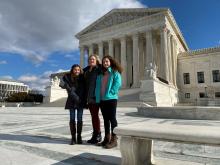
The U.S. Supreme Court narrowed the separation of church and state in a major ruling on Tuesday by endorsing Montana tax credits that helped pay for students to attend religious schools, a decision paving the way for more public funding of faith-based institutions.

In many ways, Seele and countless others who forged the Black church’s response to HIV/AIDS laid the foundation for an effective and powerful faith-based response to COVID-19.
The second Great Depression, how to be alone, the resistance of the black church, and more.
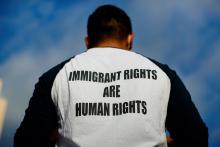
Several Democratic senators grilled Customs and Border Protection Acting Commissioner Mark Morgan.

Communication between scientists in China and scientists in the U.S. has essentially shut down, eliminating opportunities for the U.S. to learn from China’s response to the virus.
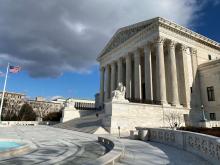
The justices ruled 7-2 in favor of the administration.
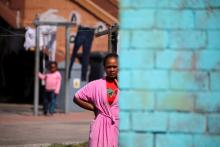
“I was very scared when I saw them coming with their trucks,” Annie Paul, who was inside her shack on the day of the demolition, said. “Before I could pick up some of my stuff to leave, they had already started pulling the building down and in a matter of minutes, everything was gone. They didn’t allow us to pick anything.”
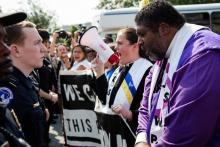
On Saturday, more than 2 million people gathered virtually to “call for a radical redistribution of political and economic power” as part of the Mass Poor People’s Assembly and Moral March on Washington Digital Justice Gathering.
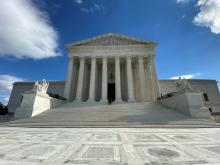
The U.S. Supreme Court on Thursday ruled against Donald Trump's bid to end a program that protects from deportation hundreds of thousands of immigrants, dubbed "Dreamers," who entered the United States illegally as children.
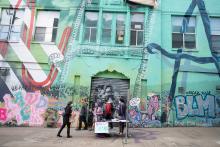
Late Monday afternoon, dressed in clerical garb, eight chaplains – three Jewish, three Unitarian Universalist, and two Christian – went into the six-block area originally called CHAZ (the Capitol Hill Autonomous Zone), along with their hand-drawn sign, a folding table, and a willingness to offer faithful presence for anyone who needed it.

A Georgia county prosecutor on Wednesday announced that a fired Atlanta police officer has been charged with felony murder in the shooting death of Rayshard Brooks, 27, in the parking lot of a fast-food restaurant last week.
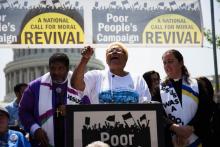
This Saturday, people across the country will come together digitally to demand action from public officials as part of the Mass Poor People’s Assembly & Moral March on Washington.

On Monday, law enforcement officials in California announced further investigation into the deaths of Robert Fuller and Malcolm Harsch.
Fuller, 24, was found hanged from a tree in a park about a block from Palmdale City Hall last Wednesday. Harsch, 37, was discovered 10 days earlier on May 31, hanged from a tree in Victorville, which lies just 50 miles east of Palmdale.
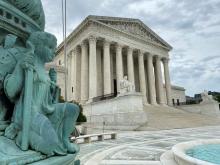
The U.S. Supreme Court on Monday delivered a watershed victory for LGBTQ rights, ruling that a landmark federal law forbidding workplace discrimination protects gay and transgender employees.

On June 5, nearly 1,000 people gathered for the Belle Isle Freedom March organized by Detroit resident and former mayoral candidate Ken Snapp in response to the death of George Floyd. The one-mile march echoed the 1965 Selma march with organizers calling for peace and unity.
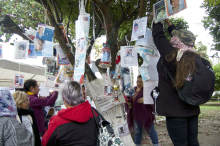
“My name is Maria Herrera,” she told the congregation, “and I have four disappeared sons.” She went on to plead for their solidarity: for anyone with information about where the brigade might find clandestine graves to speak out. The brigade, Maria emphasized, doesn’t look for guilty parties. They don’t care about finding out who took their loved ones. They just look for their family members, dead or alive.
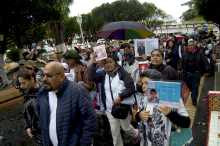
Desde donde me encontraba en la iglesia de Papantla, esperando agarrar aire cerca de la puerta lateral, miré a mi alrededor para ver docenas de mujeres con los ojos llenos de lágrimas. La procesión volvió a las calles de Papantla, encabezada por el obispo con sus vestimentas verde esmeralda. Marcharon durante la siguiente hora por la ciudad, sosteniendo sus fotos y gritando. Los espectadores se reunieron en las esquinas; los dueños de las tiendas se acercaron a la puerta para ver pasar a la multitud. "Unete, únete, que tu hijo puede ser," cantaban.